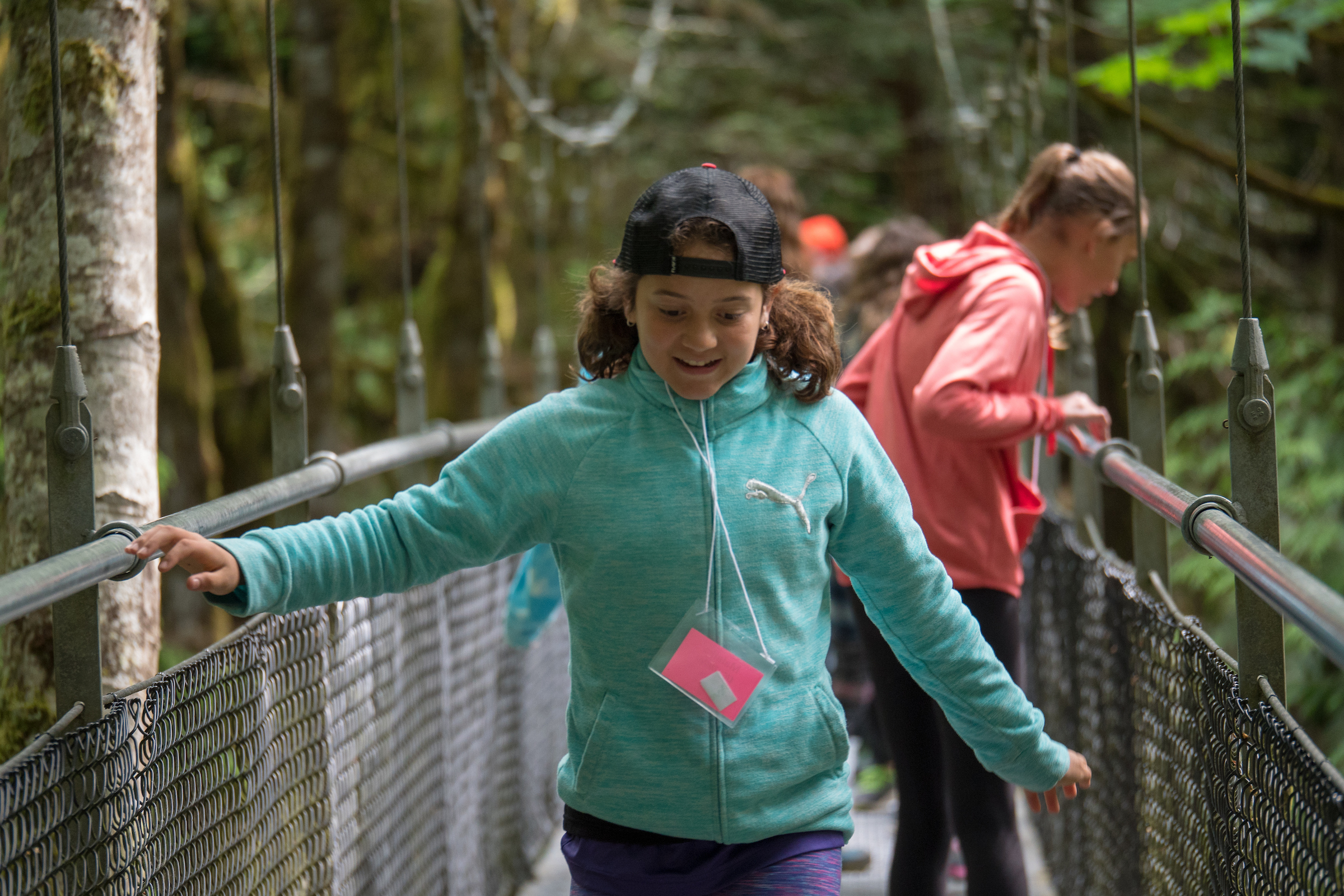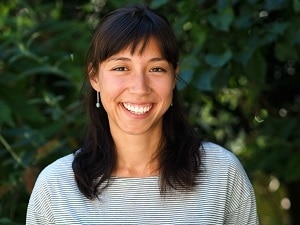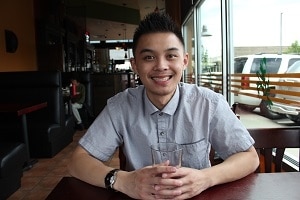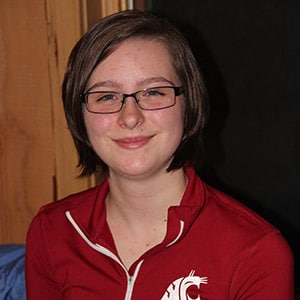If you look at the leaves of the salmonberry, a plant that thrives in the…
Author: Hanna Hupp
Each week, our School Overnight Program has a lofty goal — to engage curiosity, build community, and inspire 4th – 6th graders to become environmental problem solvers capable of addressing the most critical issues facing our planet.
All in the span of four days.
But we can’t reach this goal alone. Instead, we rely on consistent feedback from chaperones, teachers, and other stakeholders to continually grow, improve, and deliver a program that best serves our community’s needs and our organization’s mission.
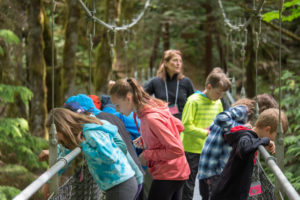
School Overnight Students during an investigation on the Suspension Bridge.
Each year, our School Overnight Program (SOP) team gathers feedback from chaperone and teacher surveys, teacher debriefs, and instructor evaluation forms — inviting a crucial conversation between our team and the teachers, chaperones, students, and parents that we serve. Last year, we continued this conversation with the first annual SOP Annual Report, a document that went beyond statistics and accomplishments to reflect on what we heard from our stakeholders and make a commitment to where and how we want to grow.
We hope that this year’s report will do the same — increase transparency about the SOP program, deepen relationships with the schools we serve, and demonstrate our accountability to our community.
Be sure to check out the full report here, and keep scrolling for some of the highlights!
2018-2019 by the numbers
- 4,051 students
- 650 teachers and chaperones
- Of these students, 49% were from schools where fewer than 25% of students qualified for free and reduced lunch (FRL), 20% of total students were from schools between 26-49% FRL, and 31% of total students were from above 50% FRL
- $269,540 in scholarships granted
- 66 student and 47 parent orientations
- 300 students participated in a University of Washington evaluation of SOP
The feedback process
In the middle of SOP week, we invite teachers to a debrief lunch to help determine the effectiveness of our culturally responsive teaching strategies. We then send a survey to teachers and chaperones on the Friday after SOP to gather feedback about whether we achieved our SOP objectives during their time here. Three months after the SOP experience, we send another survey to find out whether our objectives have stuck with their students.
What we heard
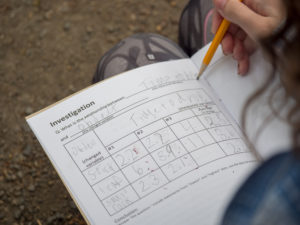
A School Overnight Student recording their observations from an investigation on the Suspension Bridge.
“I was able to watch students embrace new roles that I hadn’t seen demonstrated in the classroom. This has inspired me to be more mindful about how I can cross-teach subjects while incorporating the natural world and venturing outside the walls of the classroom. I learned a great deal by watching the instructors and picked up some new teaching techniques. I also learned to step back and resist the immediate temptation to guide students, and instead let them experience the productive struggle.”
– Montlake Teacher
Above all, teachers appreciated our engagement of all students, our commitment to engaging across boundaries, and the experiential learning opportunities that we provided. They were grateful for the inclusivity and flexibility of our instructors, who created a space for all students to engage and participate. They spoke about the connections made through our policy of intentionally mixing groups of students. And they reflected on the joy of seeing students explore, discover, and “do.”
And we also heard areas where teachers would like us to grow — going deeper with science, providing more context about why we measure food waste in the dining hall, supporting teachers and chaperones more effectively during meals and lodge time, and ensuring that the indoor and outdoor components of our program are effectively integrated.
What we’re doing
Each piece of feedback provides crucial information to guide our program’s growth and development. As a result of this year’s feedback, our team has redesigned our curriculum to incorporate climate literacy, developed a more nuanced and systems-based explanation of our food waste measurement process, created a more structured list of ideas and resources to better support adults during lodge time, will provide noise-cancelling headphones and access to alternative spaces within the Dining Hall to assist students who may be overstimulated, and revamped our indoor program to more effectively reinforce our goals. These are just a few of the ways that we’re turning teacher feedback into action.
We are so grateful to each of the teachers and chaperones who attended SOP this year and participated in our debrief lunches and surveys. Their support, partnership, honesty, and dedication enables us to continually work to inspire the next generation of environmental problem solvers.
Follow us on Facebook, Twitter, and Instagram for in-the-moment updates on how we’re implementing this important feedback throughout the year!

